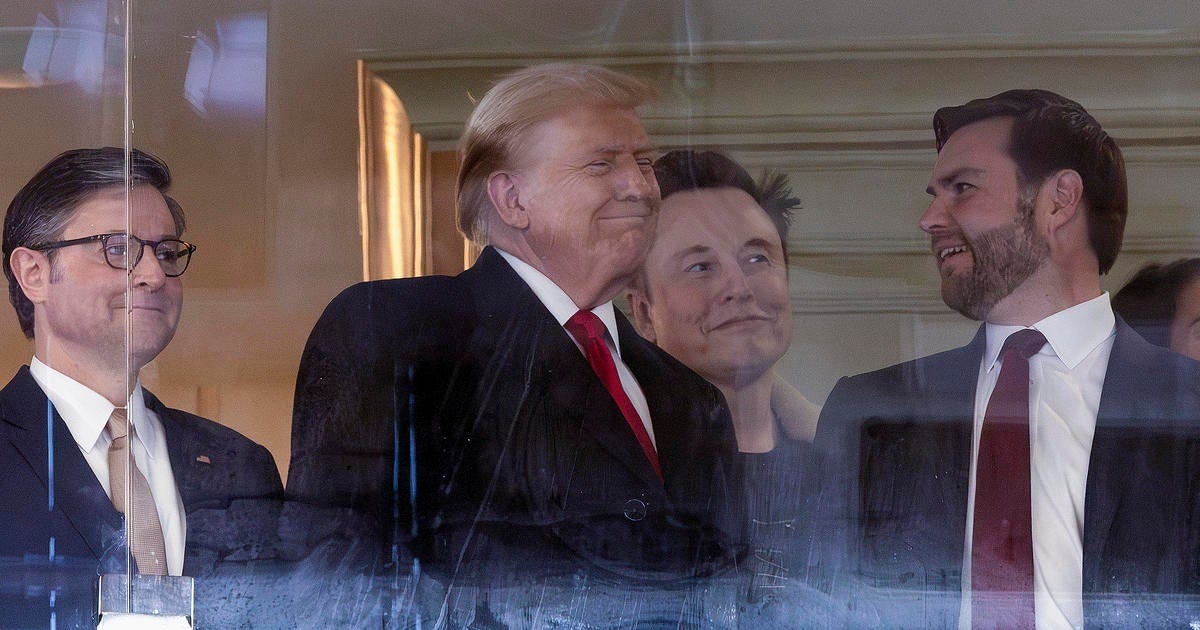EDITORIAL: Trump's MAGA agenda will DESTROY Republicans from within
The GOP's short-term victory masks deep internal fractures that will undermine its long-term viability
The Republican Party faces a growing internal dilemma that threatens its future, even after its success in the 2024 elections. While the party secured the White House, House, and Senate, these victories mask deeper structural problems that the party will have to contend with. That’s because the rise of the MAGA agenda under Donald Trump is increasingly at odds with the party’s broader coalition and could lead to a fracture that undermines the party's long-term success.
In 2024, Republicans won not because of a strong endorsement of traditional conservative values but because voters were frustrated with the economy and rejected the Biden-Harris administration. Trump’s populism and authoritarian rhetoric resonated with many, but the victory was more about opposition to the alternative than support for Trump’s agenda. This short-term success doesn’t solve the party's long-term demographic and ideological challenges, especially as the electorate shifts away from the GOP’s base.
Demographic changes in the U.S. are increasingly unfavorable to the Republican Party, particularly in suburban areas, where voters feel alienated by the GOP's focus on culture wars. The MAGA agenda, with its nationalism, authoritarianism, and divisive politics, risks further alienating moderates, suburban voters, and factions within the GOP that once supported Trump but don’t fully align with his vision.
Trump's approach marks a departure from traditional Republican policies. While fiscal conservatism and deregulation were once key pillars, the MAGA agenda focuses on nationalism, loyalty tests, and consolidation of power. This authoritarian shift creates tension within the party, which has traditionally been a broad coalition of pro-business conservatives, national security hawks, and religious groups. MAGA's emphasis on loyalty, cronyism, and punitive measures is alienating these factions.
The pro-business wing of the GOP, for instance, is uncomfortable with Trump’s protectionist trade policies. National security hawks, who prioritize America’s global standing, find Trump’s disregard for traditional alliances troubling. Religious conservatives, once aligned with the party’s moral agenda, now face a shift away from traditional values towards a focus on purging disloyalty.
While the MAGA agenda may temporarily hold the party together by uniting voters around opposition to the left, it risks alienating key Republican factions. Some of these voters may defect to other parties, while others may simply stay home, weakening the GOP’s electoral strength. This erosion of support could leave the party with a more extreme and less diverse base, making it harder to appeal to a broader electorate in future elections.
Furthermore, the GOP’s long-standing commitment to limited government and individual freedoms is under strain. As the party leans further into authoritarianism and ideological purity, it risks becoming rigid and intolerant of dissent. Historically, the GOP was a big-tent party, accommodating a range of views, but under MAGA rule, dissent is increasingly punished. This shift risks reducing the GOP to a narrow, ideologically extreme faction, which could limit its ability to adapt to changing political realities.
The authoritarian policies proposed by Trump and his allies, such as the dismantling of federal agencies and targeting political enemies, are likely to provoke public backlash. As these policies take effect, voters may begin to feel the negative consequences. This backlash could lead to defeats in local elections, state races, and the 2026 midterms, further eroding the GOP's base.
Despite the 2024 victory, the Republican Party faces significant challenges. The MAGA agenda may hold the party together for now, but it is fostering internal divisions that could weaken it in the long run. The loyalty tests, authoritarian tactics, and focus on division risk alienating moderate Republicans, suburban voters, and other key factions. As these divisions grow, the GOP may find itself a more extreme and less viable political force in the future.



